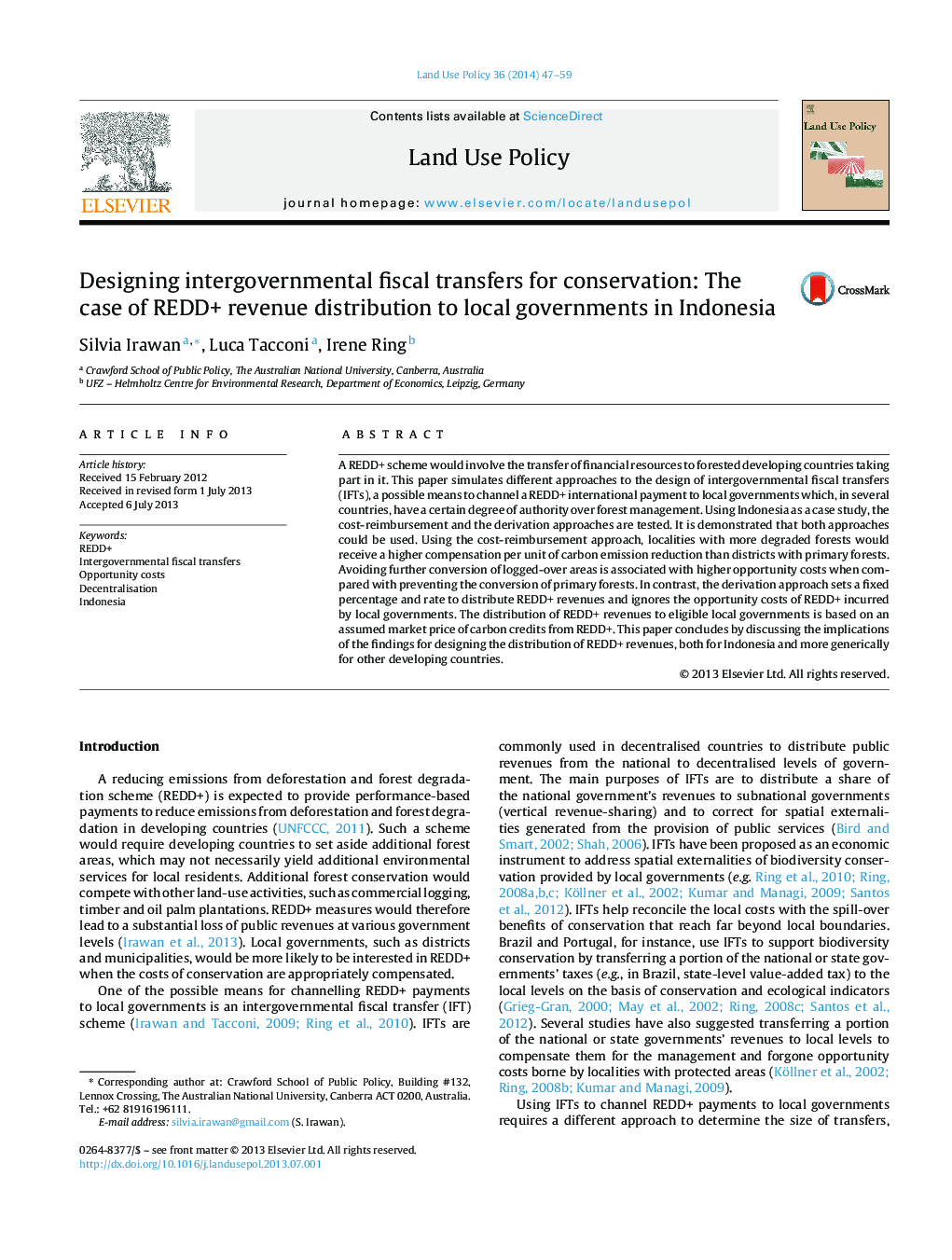| Article ID | Journal | Published Year | Pages | File Type |
|---|---|---|---|---|
| 6548902 | Land Use Policy | 2014 | 13 Pages |
Abstract
A REDD+ scheme would involve the transfer of financial resources to forested developing countries taking part in it. This paper simulates different approaches to the design of intergovernmental fiscal transfers (IFTs), a possible means to channel a REDD+ international payment to local governments which, in several countries, have a certain degree of authority over forest management. Using Indonesia as a case study, the cost-reimbursement and the derivation approaches are tested. It is demonstrated that both approaches could be used. Using the cost-reimbursement approach, localities with more degraded forests would receive a higher compensation per unit of carbon emission reduction than districts with primary forests. Avoiding further conversion of logged-over areas is associated with higher opportunity costs when compared with preventing the conversion of primary forests. In contrast, the derivation approach sets a fixed percentage and rate to distribute REDD+ revenues and ignores the opportunity costs of REDD+ incurred by local governments. The distribution of REDD+ revenues to eligible local governments is based on an assumed market price of carbon credits from REDD+. This paper concludes by discussing the implications of the findings for designing the distribution of REDD+ revenues, both for Indonesia and more generically for other developing countries.
Related Topics
Life Sciences
Agricultural and Biological Sciences
Forestry
Authors
Silvia Irawan, Luca Tacconi, Irene Ring,
